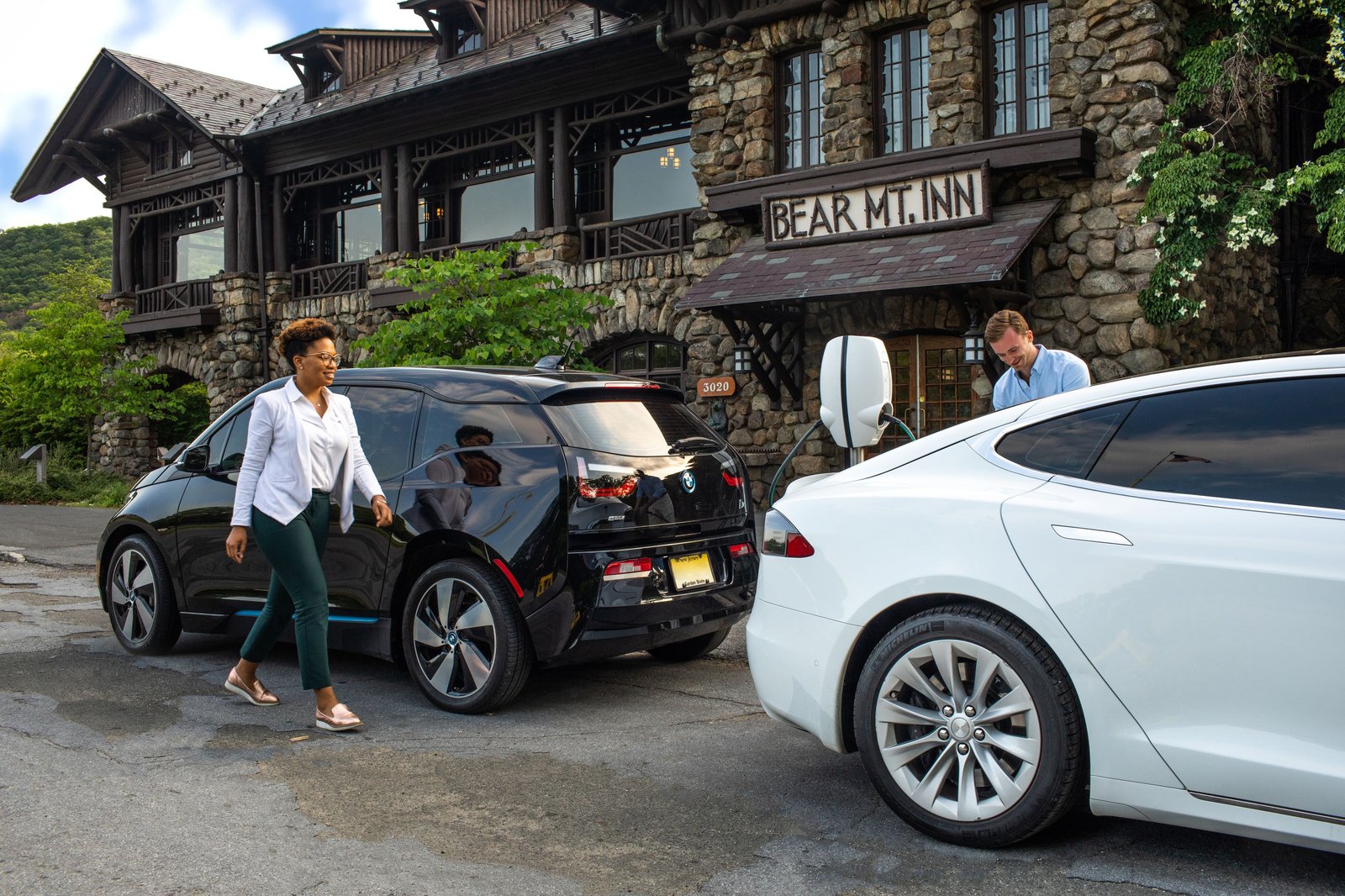
If your location has a parking lot, odds are you’ll need to install some EV charging stations soon. The population of EV drivers is growing every day, and they strongly prefer doing business in places where they can charge up. If you hope to capture and retain this valuable, ever-expanding demographic, charging stations are a must.
One thing you’ll need to consider, however, is exactly how you want to manage your EV charging stations. There are a few different methodologies and no “one-size-fits-all” solution for charging station management—it really depends on what you want to get out of your set up.
So let’s take a look at the primary ways various retail locations configure their charging stations.
Note: Get creative! The perfect solution for your location might never have been done before.
1) Charging by kWh
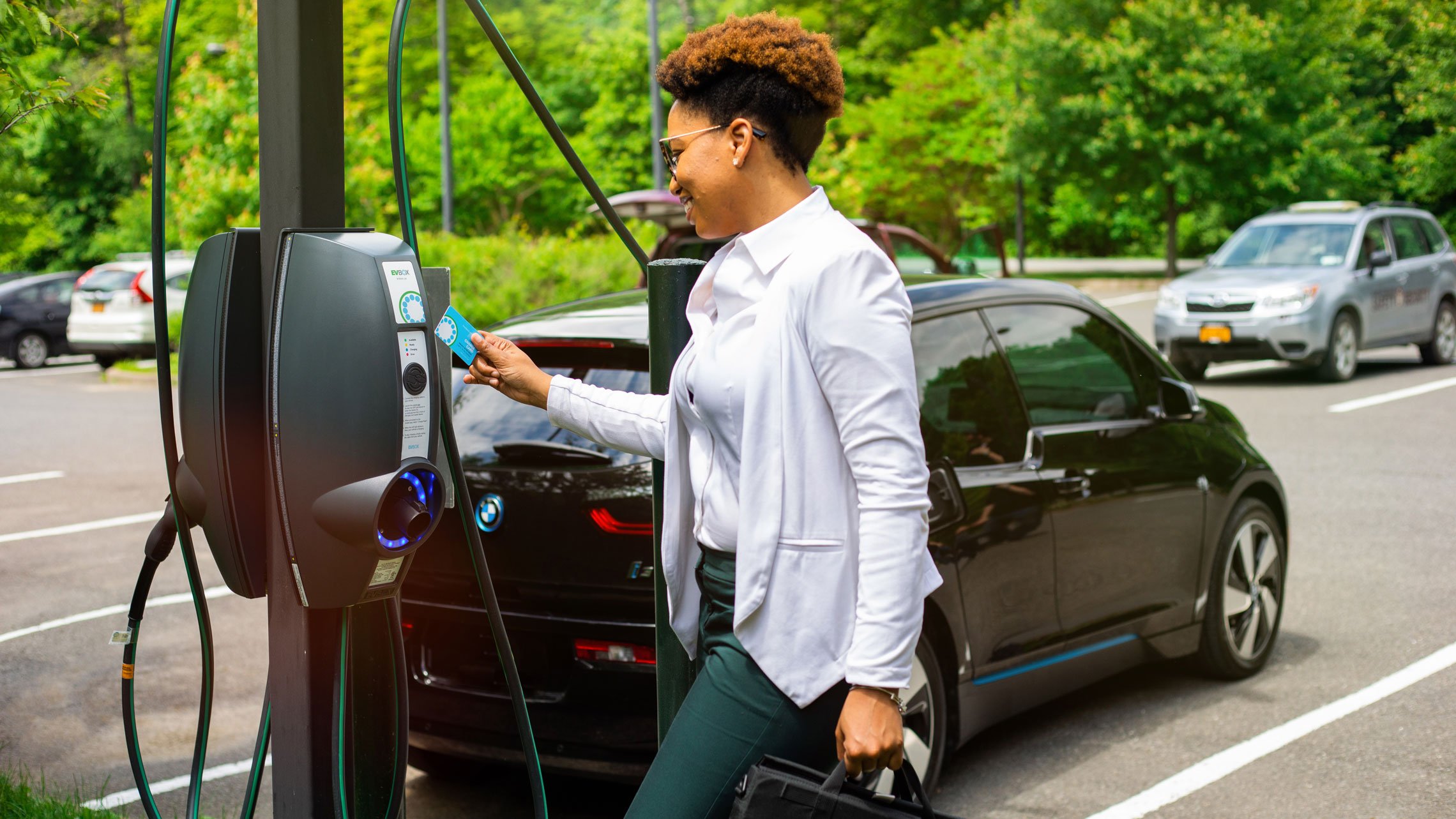
You pay for the energy your charging stations consume—why not get a little help from the EV driver? Setting up a billing structure based on kilowatt hours (kWh) used is a simple and effective way to help offset the cost of operating your charging stations. Here's how it works:
Example:![]()
Set price—$0.30/kWh
30kWh x $0.30/kWh = $9.00
Configurations this works with:
- Networked stations (e.g., Greenlots, EV Connect, Everon)
| Pros: | Cons: |
| - Simple for the site host and the EV driver - Directly recover your usage costs |
- Doesn’t prevent cars from “camping” at chargers - Not a solution in markets where you cannot resell energy |
2) Charging by time
-1.jpg?width=3902&name=Large-D15A7909_EVBox%20(1)-1.jpg)
EV chargers provide the most value while in use. If someone is camped out in a spot after their car is charged up, they’re costing you money. So why not charge them for it? Setting up a billing structure where cars pay based on the amount of time they’ve been plugged in is a great way to incentivize people to free up charging stations once their car is full up.
Example:
![]()
Set price— $2.25/hour
30kWh charge (at 7.4kW output) = ~4 hours
4 hours x $2.25/hour = $9.00
Configurations this works with:
- Networked stations (e.g., Greenlots, EV Connect, Everon)
| Pros: | Cons: |
| - Legal everywhere - Deters drivers from “camping” when full |
- favors cars with faster onboard adapters (faster charging = less time = lower cost) |
3) Charging combo! (kWh + time)
-1.jpg?width=3902&name=Large-D15A8054_EVBox%20(2)-1.jpg)
In locations where you can bill by kWh, but still want to deter people from taking up charging stations once they're full, here's one solution—a billing structure where the driver pays for the energy used AND the time spent plugged in.
Example:![]()
Set price— $0.15/kWh & $1.15/hour
(30kWh x $0.15/kWh) + (4 hours x $1.15/hour) = $9.10
Configurations this works with:
- Networked stations (e.g., Greenlots, EV Connect, Everon)
| Pros: | Cons: |
| - “Fair” method for billing EV drivers - Deters drivers from “camping” when full |
- Harder to find the “sweet spot” for pricing - Not a solution in markets where you cannot resell energy - Slightly favors cars with faster onboard adapters (faster charging = less time = lower cost) |
4) Flat rate
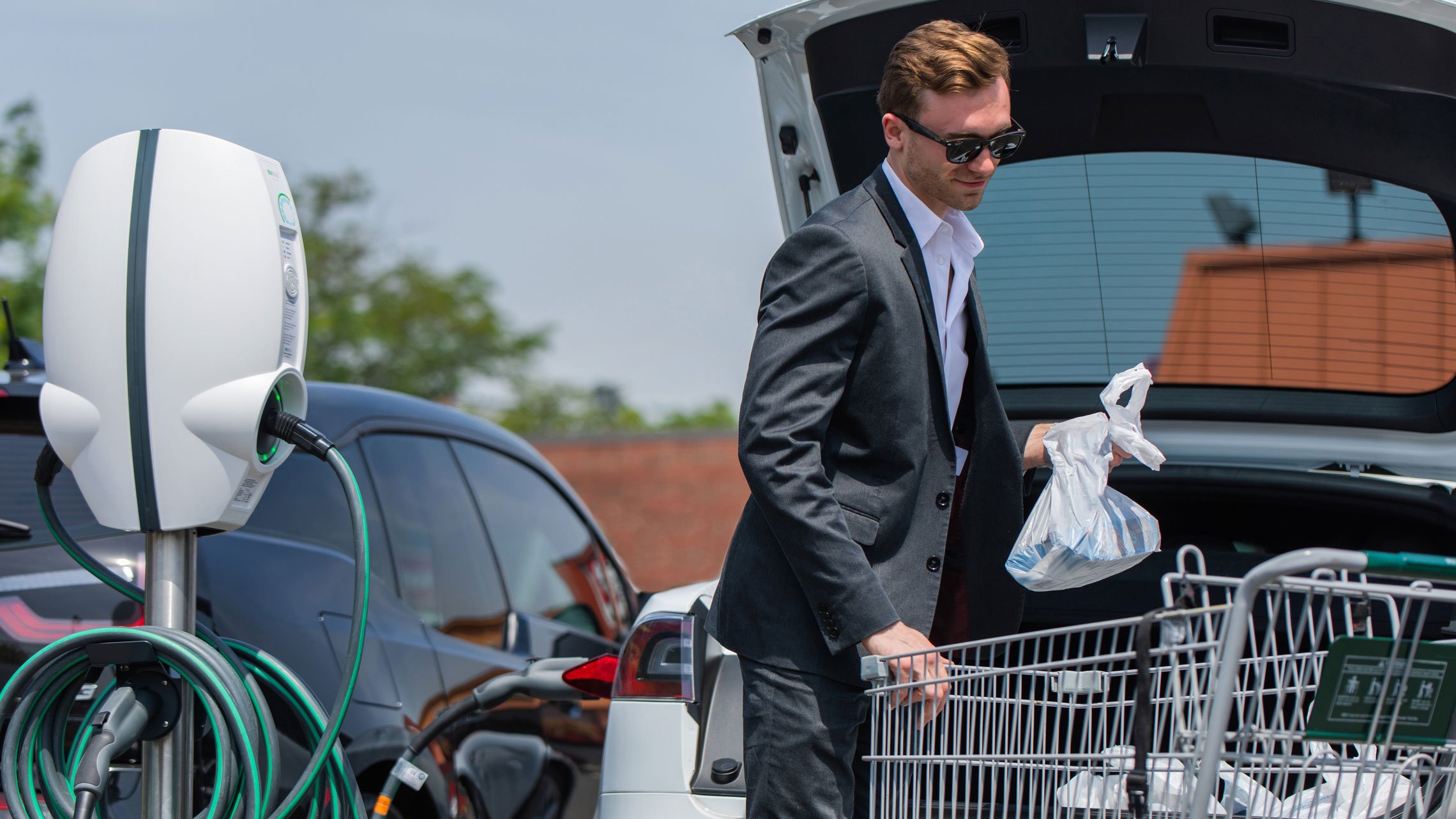
The simplest method for collecting revenue from your charging stations—one fee, the same for everyone. You can even get creative with this type of billing and collect the money yourself (i.e., a fee upon entry or a fee to use the access card). This way, you can generate a little extra revenue, while keeping your EV charging stations network-ready.
Example:![]()
Set price—$9.00 per charge
No math! It’s always $9.00
Configuration works with:
- Networked stations (e.g., Greenlots, EV Connect, Everon)
- RFID-only (network-ready with access cards)
- Plug ‘n Charge (network-ready with no access cards)
| Pros: | Cons: |
| - Revenue-collecting with network-ready stations - Ultimate pricing transparency - Doesn’t favor cars with faster onboard adapters |
- Doesn’t deter drivers from “camping” when full - Fee does not reflect energy usage—not always “fair” - Fewer robust Smart Charging features (with network-ready options) |
5) Free charging
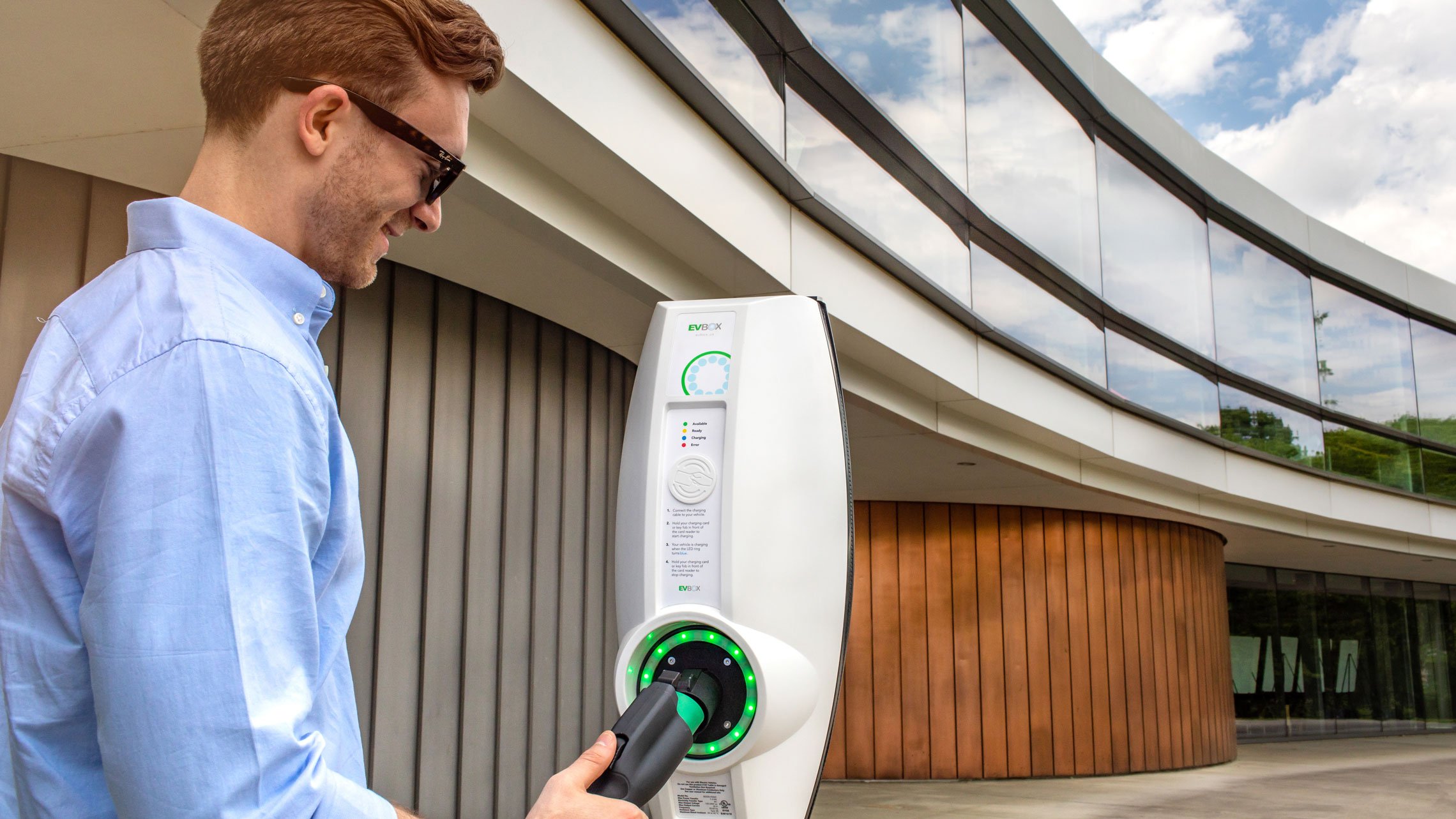
For a site host that's looking to give customers convenience, without asking for anything in return, free service is a simple, no-nonsense solution. This option works with every configuration and is a great way to start attracting EV drivers to your location—because who doesn’t love free stuff?
Example:![]()
Set price—FREE!
No math—it’s free!!
Configurations this works with:
- Networked stations (e.g., Greenlots, EV Connect, Everon)
- RFID-only (network-ready with access cards)
- Plug ‘n Charge (network-ready with no access cards)
| Pros: | Cons: |
| - EV drivers will love you - Less station management and operational cost (network-ready chargers) |
- No billing or revenue generation - Fewer robust Smart Charging features (with network-ready options) |
| Discover everything you need to know about EV charging Download our free ebook to learn why EV charging will set your business apart, help you earn additional revenue, and prepare your location for the transition to electric transportation. |
Related articles

EV charging load management and the importance of cluster load balancing
Electric vehicle (EV) charging stations can add a substantial load onto your building’s power supply, often requiring...
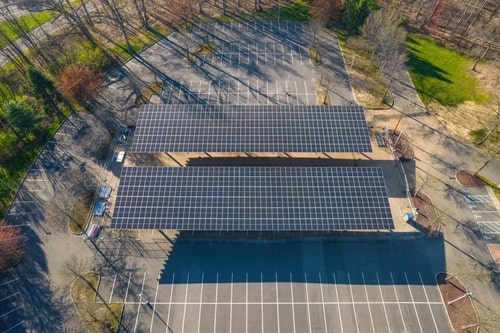
How to design a DC fast charging site
When thinking about installing DC fast charging stations on your site, careful consideration must be given to designing...

Grid connections for DC fast charging stations explained
The electrical grid is a large and established network delivering electricity from producers to consumers, and...
